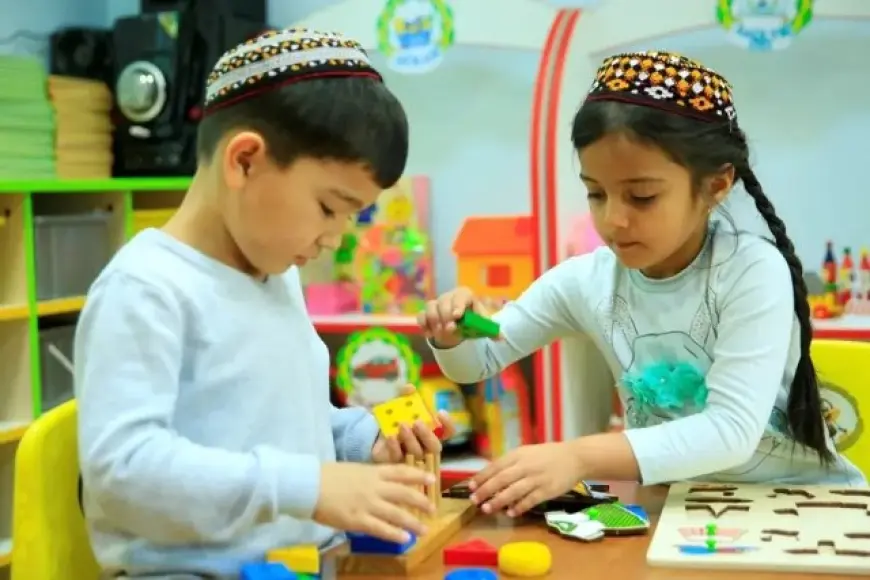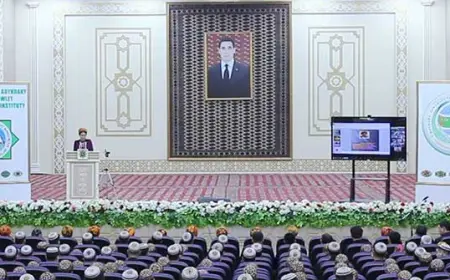Enrollment Procedure for Kindergarten Based on Child’s Place of Residence: Legal and Practical Foundations
The upbringing and early development of a child play a crucial role in shaping their personality. The first state-supported institution in this process is the kindergarten. The procedure for enrolling a child in a kindergarten based on their place of residence is governed by the legislation of Turkmenistan, particularly the Law “On Education”, as well as by regulations governing the operation of preschool institutions issued by educational authorities.

1. Rights of Preschool-Aged Children
According to Article 6 of Turkmenistan’s Law “On Education”:
"Every citizen has the right to education. The state guarantees access to preschool education and upbringing for all children."
This means:
-
Every preschool-aged child has the right to be enrolled in a kindergarten under conditions provided by the state;
-
A parent or legal guardian has the right to apply for the child's admission to the nearest kindergarten based on their place of residence.
2. Legal Basis for Kindergarten Enrollment
The enrollment procedure is regulated by the following legal instruments:
-
The Law of Turkmenistan “On Education”;
-
The Civil Code of Turkmenistan (regarding residence, legal representatives, etc.);
-
The Law “On the Rights of the Child”;
-
The Law “On Public Health”;
-
Regulations and orders issued by the Ministry of Education and regional/local departments of education.
3. Enrollment Procedure
3.1. Who can apply?
-
The child's parents;
-
A legal guardian;
-
A government agency, in cases where the child is an orphan or parental rights are revoked.
3.2. Who can be admitted?
-
Children aged 1 to 6–7 years;
-
The child must be registered at the place of residence (proof of address is required).
3.3. Required Documents:
-
Written application from the parent or guardian;
-
The child’s birth certificate;
-
Parent’s or guardian’s passport (with registered address);
-
Medical certificate (form No. 026U);
-
Immunization record (form No. 063U);
-
Proof of residence (a certificate from local authorities or a housing document).
3.4. Waitlist System
-
In some regions, an electronic queue system is in place;
-
In major cities, enrollment is often based on pre-registration, managed by local education departments.
4. Criteria for Admission
-
Proximity to the place of residence — for safety and convenience;
-
Availability of space in the group;
-
Parent’s place of employment — sometimes considered, especially for working mothers;
-
Special needs — children with developmental or health-related needs may be placed in specialized groups.
5. Priority (Privileged) Categories
Children with the following status have priority rights for admission:
-
Children of military personnel or national security employees;
-
Children from large families;
-
Orphans or children who have lost one parent;
-
Children from low-income families;
-
Children of working mothers, especially those employed in the public sector.
6. If a Child Is Not Accepted at the Local Kindergarten
If a child is not accepted:
-
A written appeal may be submitted to the district or city education department;
-
Parents may request placement at an alternative kindergarten;
-
All written applications and official responses should be retained;
-
If needed, a complaint can be filed in court to defend the child’s rights.
The right of a child to receive preschool education at their place of residence is a fundamental aspect of the right to education guaranteed by the Constitution and laws of Turkmenistan.
The state ensures access to preschool institutions for all children, regardless of family background.
Priority status, fairness in admission, and the use of digital tools (such as electronic waitlists) are part of the government's efforts to provide equal access, transparency, and legal protection for every child.



























